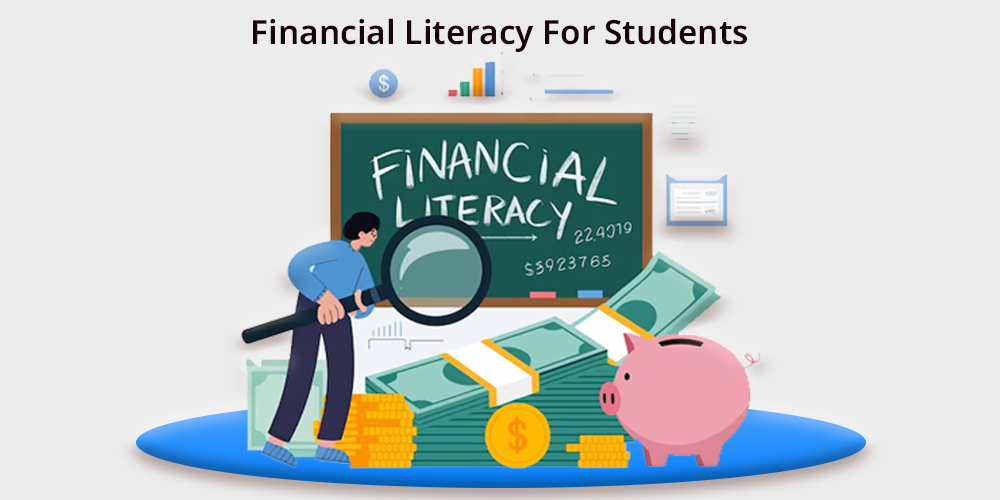In today’s fast-paced, digitally driven world, teaching children about money is no longer enough. Financial literacy has become an essential skill, but it cannot exist in isolation. With children in the UAE increasingly exposed to digital tools from online banking apps to e-wallets and interactive games cybersecurity awareness must go hand in hand with financial education. Equipping children with both these skills ensures they grow into responsible, confident, and digitally savvy adults, ready to navigate the modern world safely and wisely.
The Growing Importance of Financial Literacy
Financial literacy is not merely about counting coins or understanding how to make purchases. For children, it involves building a healthy relationship with money, understanding its value, and learning how to make informed decisions. In the UAE, children often have early exposure to financial tools such as prepaid debit cards, online banking platforms, and digital allowances. Without guidance, they may struggle to manage these resources responsibly.
Introducing financial concepts early helps children develop skills like budgeting, saving, and differentiating between wants and needs. These habits form a foundation for lifelong financial responsibility. When children learn to manage their money wisely, they also learn about discipline, delayed gratification, and decision-making. Over time, these lessons shape their understanding of financial independence and responsibility.
For example, a child who learns to set aside a portion of their allowance for savings is more likely to understand investments and the importance of long-term planning as they grow. Financial literacy empowers children to make smart choices, avoid unnecessary debt, and understand the consequences of poor financial decisions.
Digital Exposure and the Rise of Cyber Risks
In the UAE, technology is deeply integrated into daily life. Children use smartphones, tablets, and computers from an early age, often accessing educational apps, games, and online platforms. While these digital tools provide valuable learning opportunities, they also expose children to cybersecurity risks.
Cyber threats such as phishing, identity theft, and online scams can have significant consequences, particularly when financial transactions are involved. A child who shares their personal information or online banking details without understanding the risks may face financial loss or privacy breaches.
Additionally, children may encounter fraudulent websites or apps disguised as games, rewards programs, or shopping portals. Without proper education, children may fall victim to these threats, leading to both financial and emotional harm. Therefore, cybersecurity education is no longer optional—it is essential alongside financial literacy.

The Connection Between Money and Digital Safety
Financial literacy and cybersecurity are intertwined. As children begin managing money online, whether through a banking app, digital wallet, or even in-game purchases, they must understand how to protect their accounts. Skills such as creating strong passwords, recognizing suspicious websites, and avoiding sharing personal details are just as important as learning to save or budget.
Teaching children these dual skills ensures that they are prepared for real-world challenges. For instance, understanding that a free online game requiring a credit card could be a scam is a lesson that combines both financial caution and digital safety awareness. When children learn to handle money responsibly while staying safe online, they develop critical thinking and decision-making skills that serve them well into adulthood.
Practical Steps for Parents and Educators
Parents and educators are crucial in guiding children to develop financial literacy and cybersecurity awareness simultaneously. Here are actionable steps to implement this dual education:
- Introduce Money Concepts Early: Use games, interactive apps, or storytelling to teach children about saving, spending, and budgeting. Make learning about money fun and relatable.
- Teach Digital Responsibility: Explain the importance of keeping passwords secret, identifying suspicious emails, and understanding the risks of online transactions.
- Combine Lessons with Real-Life Examples: Show children real scenarios, such as purchasing items online, managing pocket money digitally, or donating to charity. Encourage them to think critically about each decision.
- Encourage Open Communication: Let children ask questions about financial or digital experiences. Foster a safe environment for discussion without judgment.
- Use Technology Wisely: Introduce educational apps that teach financial skills while promoting safe online behavior. Limit exposure to unverified platforms to reduce risks.
By following these steps, parents and educators can empower children to make informed financial decisions while navigating the digital world safely.
The Role of Schools in Integrating Dual Education
Schools in the UAE have a unique opportunity to integrate financial literacy and cybersecurity into their curriculum. By combining these subjects, schools can create a holistic learning experience that prepares children for life beyond the classroom.
Lessons on online banking, digital payments, safe internet usage, and budgeting can be integrated into practical subjects. Project-based learning, for example, allows students to simulate managing an allowance digitally, making purchases, and safeguarding their accounts. This hands-on approach ensures that children internalize both financial and cybersecurity skills.
Moreover, schools can collaborate with local banks and tech companies to provide workshops or seminars for students and parents. These programs help children understand the real-world application of financial literacy and cybersecurity while building trust in digital tools. Schools that prioritize this dual education model ensure their students are not only academically competent but also prepared for challenges in a modern, digital economy.

Benefits of Dual Education for UAE Children
The combination of financial literacy and cybersecurity education offers numerous benefits:
- Confidence in Handling Money: Children learn how to save, invest, and spend wisely, building confidence in managing resources.
- Digital Awareness: They become capable of recognizing online risks, protecting their personal information, and navigating digital platforms safely.
- Problem-Solving Skills: Children learn to make decisions by considering both financial consequences and digital risks.
- Independence: They develop the ability to manage both finances and digital identities responsibly, fostering self-reliance.
- Future-Readiness: With digital currencies, e-commerce, and online banking becoming increasingly common, these skills prepare children for success in the modern economy.
By acquiring these competencies early, children in the UAE gain a significant advantage, equipping them to handle real-world challenges effectively and seize opportunities in a technology-driven world.
Real-Life Examples and Success Stories
Many families in the UAE have already witnessed the benefits of integrating financial literacy with cybersecurity education. For instance, children who manage their pocket money through secure apps learn budgeting while practicing safe online habits. Parents report that these children are more responsible with money and more aware of online risks compared to peers who have not received this dual education.
Online gaming platforms with in-game currency are another practical example. Children learn about earning, spending, and saving virtual money while also being taught to safeguard their accounts. Schools incorporating financial and cybersecurity lessons in extracurricular activities have also reported improved decision-making skills among students, highlighting the real-world applicability of these skills.
These examples emphasize that financial literacy and cybersecurity education are not abstract concepts they are practical, everyday skills that children can apply immediately. By experiencing both simultaneously, children internalize lessons more effectively and develop habits that carry into adulthood.
Government Initiatives Supporting Financial and Digital Education
The UAE government has recognized the importance of equipping children with both financial literacy and cybersecurity skills. Various initiatives and programs aim to empower young learners, preparing them for a secure and prosperous future.
Financial literacy programs for schools teach children about saving, investing, and responsible spending, while digital safety campaigns educate children about cybersecurity, online threats, and safe digital practices. Collaborative efforts between schools, financial institutions, and tech companies ensure that children have access to the latest tools and knowledge, creating a supportive ecosystem for dual education.
By aligning government initiatives with school and parental guidance, the UAE can ensure that children develop the skills needed to thrive in a digital-first economy.
Future Outlook: Preparing Children for a Digital Economy
As the UAE continues to embrace technology and innovation, the need for financial literacy combined with cybersecurity education will grow exponentially. Digital banking, online payments, e-commerce, and cryptocurrency are no longer distant concepts they are part of daily life.
Children who are equipped with these dual skills will have a clear advantage. They will be able to manage finances responsibly, navigate digital tools confidently, and recognize potential risks before making decisions. These abilities not only safeguard children in the present but also prepare them for professional opportunities in the future.
A forward-thinking approach to education that combines financial literacy and cybersecurity ensures that children are not only academically prepared but also equipped to thrive in a rapidly evolving digital economy. By embedding these skills into early learning, the UAE can foster a generation of smart, safe, and empowered young adults.
Conclusion
Financial literacy and cybersecurity are no longer optional skills for children they are essential. In the UAE, where technology and finance are deeply integrated into everyday life, combining these two areas of education is vital for preparing children to face the challenges of the modern world.
Teaching children to manage money responsibly while protecting themselves online ensures they grow into adults who are confident, informed, and secure. By investing in dual education, parents, educators, and policymakers can empower children to make smart financial decisions, navigate digital platforms safely, and seize opportunities in a technology-driven world.
In essence, financial literacy and cybersecurity education together create a foundation for lifelong success. They teach children not only the value of money but also the importance of safety, awareness, and critical thinking. The UAE’s commitment to nurturing digitally savvy and financially responsible children today ensures a future generation that is prepared, empowered, and resilient.
Do follow Gulf Magazine on Instagram.
Also Read – From China to the Gulf: How Emerging Donors Are Reshaping Global Development



